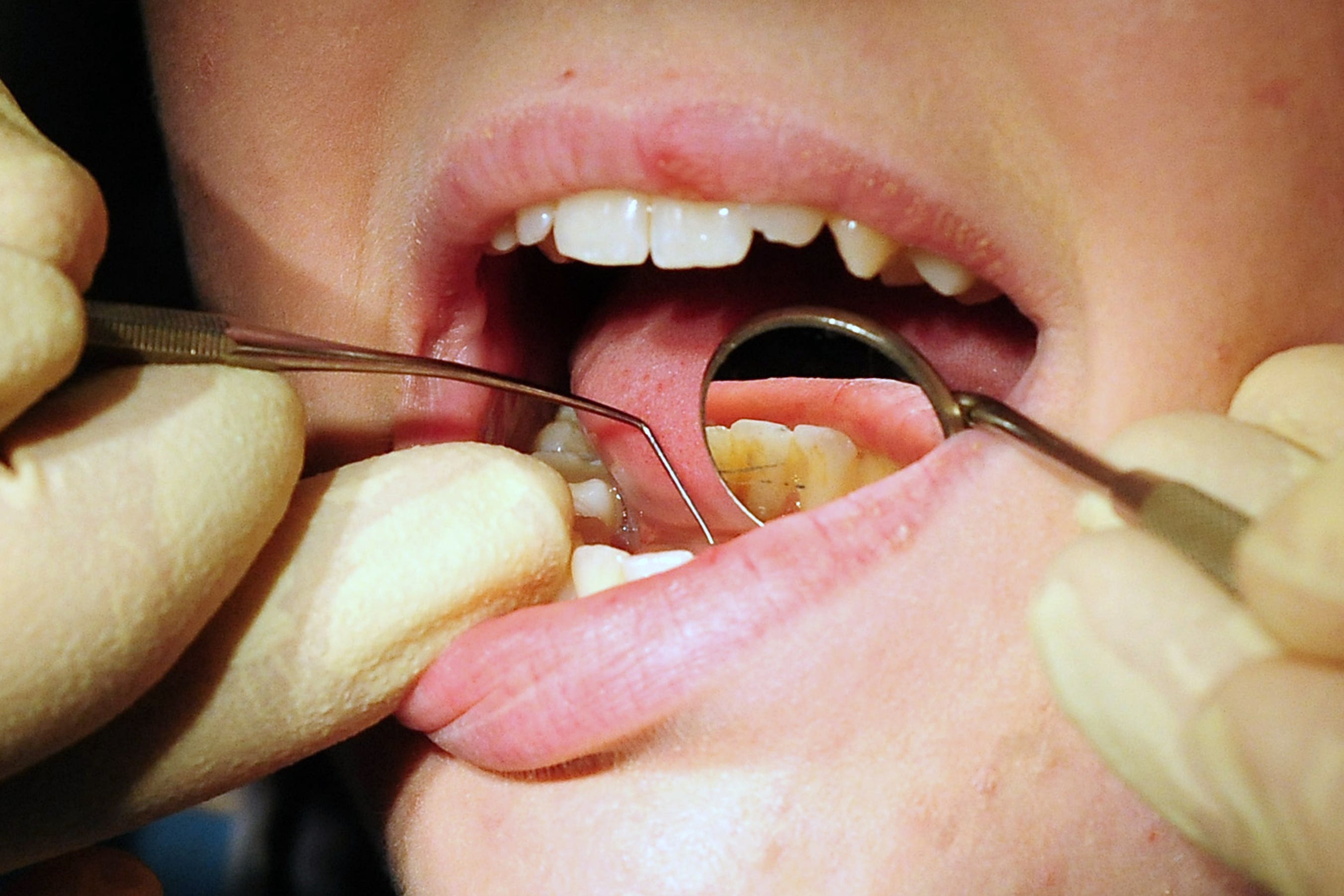Children in most-deprived areas ‘three times more likely’ to need teeth removed
The analysis included records from 608,278 youngsters living in north-east London aged five to 16.

Your support helps us to tell the story
From reproductive rights to climate change to Big Tech, The Independent is on the ground when the story is developing. Whether it's investigating the financials of Elon Musk's pro-Trump PAC or producing our latest documentary, 'The A Word', which shines a light on the American women fighting for reproductive rights, we know how important it is to parse out the facts from the messaging.
At such a critical moment in US history, we need reporters on the ground. Your donation allows us to keep sending journalists to speak to both sides of the story.
The Independent is trusted by Americans across the entire political spectrum. And unlike many other quality news outlets, we choose not to lock Americans out of our reporting and analysis with paywalls. We believe quality journalism should be available to everyone, paid for by those who can afford it.
Your support makes all the difference.Children living in the most deprived areas are three times more likely to need rotten teeth removed in hospital, according to a study.
Researchers said there was an urgent need for fairer access to dental services in order to tackle inequalities.
The findings, published in BMJ Public Health, were a “telling reminder” for the new Government that “decay and deprivation go hand-in-hand”, experts said.
Sadly, our findings demonstrate wide socioeconomic and ethnic inequalities related to access to dental care and outcomes
The analysis by researchers at Queen Mary University, London, included records from 608,278 children in the north-east of the capital aged five to 16.
Of the total, some 3,034 children had at least one tooth extracted under general anaesthetic, which is performed in a hospital setting.
Researchers said that while the prevalence of at least one tooth extraction among the age group was “low”, there were “marked ethnic inequalities” and “the prevalence in the most deprived areas was more than three times higher than in the least deprived areas”.
Vanessa Muirhead, co-author and reader and honorary consultant in dental public health at Queen Mary, said: “Sadly, our findings demonstrate wide socioeconomic and ethnic inequalities related to access to dental care and outcomes.
Our findings point to an urgent need for equitable access to preventive general dental services, and interventions that are targeted at the wider determinants of dental health
“Tooth extraction is a last resort, but when families have difficulty accessing timely preventive and treatment services, dental problems can progress until children need more serious and costly interventions such as multiple tooth extractions under general anaesthesia.”
Children from white Irish, Bangladeshi, Pakistani and other Asian ethnic backgrounds who were registered with a GP in Tower Hamlets were more likely to have had at least one tooth removed compared to those born earlier, of a white British ethnic background, and registered with a GP in Newham.
Children from Chinese, white and black African, other mixed, Indian, black African, other black and missing ethnic backgrounds, and registered with a GP in Barking and Dagenham, Havering, Redbridge and Waltham Forest, were also less likely to have had at least one tooth extracted under general anaesthetic.
Lead author Nicola Firman, a health data scientist at Queen Mary, added: “Linking health data from different settings has allowed us to see inequalities in the dental care system more clearly.
“Our findings point to an urgent need for equitable access to preventive general dental services, and interventions that are targeted at the wider determinants of dental health.”
The research was supported by Barts Charity.
Tooth decay remains the most common reason for youngsters aged five to nine to be admitted to hospital.
Earlier this year, figures from the Office for Health Improvement and Disparities (OHID) revealed there were 47,581 tooth extractions in NHS hospitals in England for patients aged 0 to 19 last year.
Some 66% of extractions – or 31,165 – were down to a primary diagnosis of tooth decay, up 17% from the previous 12 months.
In the run-up to the General Election, Labour vowed to provide 700,000 additional dentistry appointments and introduce a supervised tooth-brushing scheme for three to five-year-olds.
We need urgent action, both to rescue NHS dentistry and to put promises on prevention in practice
Following the party’s victory at the July 4 vote, Health Secretary Wes Streeting met with leading dentists to begin discussions about reforming the NHS dental contract.
Eddie Crouch, chairman of the British Dental Association (BDA), said: “This is a telling reminder for a new government that decay and deprivation go hand-in-hand.
“Children in our poorest communities – who are also the least likely to see a dentist – remain the hardest hit.
“We need urgent action, both to rescue NHS dentistry and to put promises on prevention in practice.”
The Department of Health and Social Care has been approached for comment.